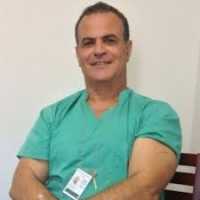Author Interviews, COVID -19 Coronavirus, Heart Disease / 24.06.2020
Trial of Gout Medication Colchicine for Inflammation of COVID-19
MedicalResearch.com Interview with:
Spyridon G. Deftereos MD PhD
Prof. of Cardiology, Medical School
National and Kapodistrian University of Athens
Greece
MedicalResearch.com: What is the background for this study?
Response: Research on COVID-19 early revealed that inflammation plays a crucial role in the pathophysiology of the disease. Therefore, we designed GRECCO-19 study in order to evaluate the effect of colchicine, a relatively safe drug with known anti-inflammatory properties, in patients hospitalized for SARS-CoV-2 infection. (more…)


